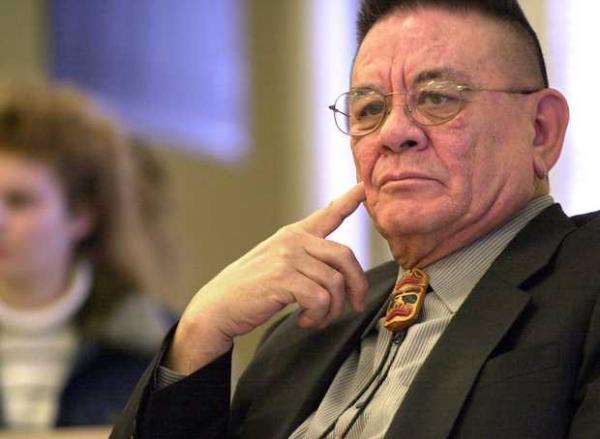Bill Would Make Teaching Native History Mandatory In Washington

Richard Walker
A bill that would require schools in Washington State to include local indigenous nations in their history instruction is on its way to becoming law.
Ten years ago, the state legislature adopted similar legislation encouraging the teaching of Native American history. Working with indigenous nations, the state Office of the Superintendent of Public Instruction developed a curriculum, “Since Time Immemorial: Tribal Sovereignty in Washington State,” which is available at no cost to school districts. But as late as December 2014, state Sen. John McCoy, D-Tulalip, estimated that only 30 percent of school districts in Washington State had adopted the curriculum.
McCoy sponsored the 2005 legislation and the latest bill, SB 5433. The bill was approved 42-7 by the Senate on March 11. It was approved on March 23 by the House Committee on Community Development, Housing & Tribal Affairs and referred to the Rules Committee for review.
SB 5433 has bipartisan support. Of 16 co-sponsors, five are Republicans, including Senate President Pro Tem Pam Roach, R-Auburn.
The House version of the bill, HB 1511, has 22 co-sponsors, five of them Republican, and was approved 62-34 by the House on March 4. It is before the Senate Committee on Early Learning & K-12 Education.
McCoy said he couldn’t get support for required instruction of Native history in 2005. The difference today: More understanding of the importance of including the state’s indigenous cultures in regular school curriculum.
The 2005 legislation that established “Since Time Immemorial” seeks to improve student knowledge of indigenous history and culture; foster cross-cultural respect and understanding; and bolster cultural sensitivity in all students.
It also seeks to give more balance to history instruction, which has often ignored the state’s indigenous history.
“We do have a rich, solid history in the state, and it should be taught,” McCoy said in an earlier interview. Doing so would help students understand sovereignty and the work that indigenous nations do in their historical territories—authority that many elected officials don’t understand, McCoy said.
The state Office of Financial Management reports that there will be no financial impact from requiring the teaching of indigenous history, because the curriculum is already developed.
“This [bill] requires districts to use the curriculum developed and made available free of charge by OSPI,” the Office of Financial Management reports.
Read more at http://indiancountrytodaymedianetwork.com/2015/04/12/bill-would-make-teaching-native-history-mandatory-washington-159977